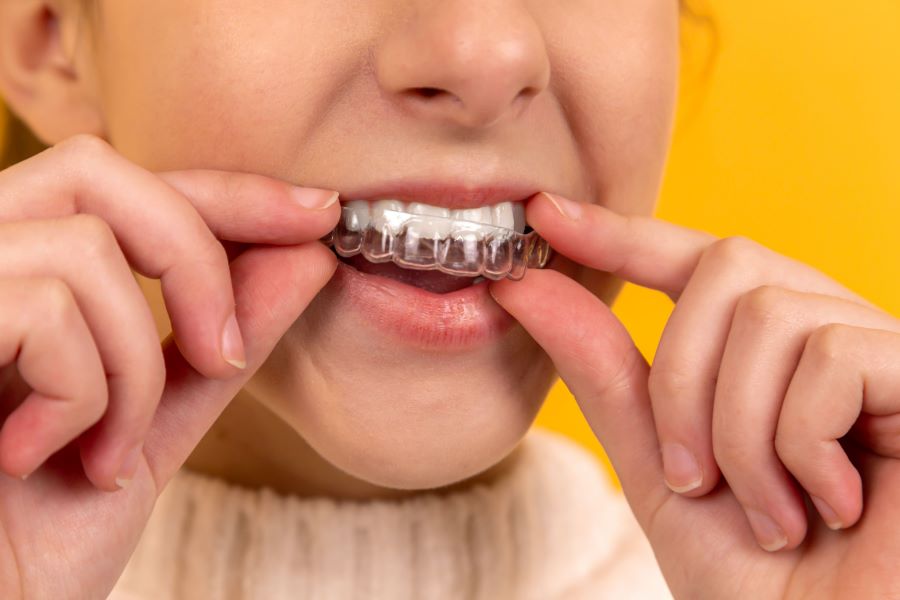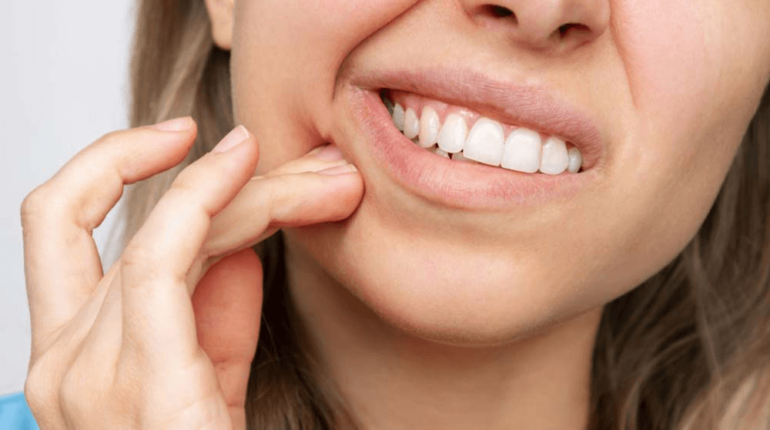If you’re worried about long-term effects, the good news is that permanent sensitivity from whitening treatments is quite rare. Most people experience this sensitivity for a short while, usually a few days to a couple of weeks post-treatment, and it gradually subsides as your teeth adjust to the process. In this article, I will explain how can teeth whitening cause permanent sensitivity?
When it comes to the potential for sensitivity after a whitening treatment, it’s essential to understand that not all whitening methods are equal. For instance, in-office professional treatments might cause more immediate sensitivity due to their higher concentration of whitening agents, but they also tend to deliver quicker results. On the other hand, at-home kits often have lower concentrations, resulting in milder sensitivity, but they might take a bit longer to show noticeable changes.
Another factor impacting sensitivity is how your teeth react to the whitening agents. Some individuals might experience minimal sensitivity, while others might feel it a bit more intensely. Factors like tooth enamel thickness, existing dental issues, or gum sensitivity can play a role here.
For those worried about long-term effects, the vast majority of sensitivity stemming from whitening treatments tends to be temporary. The enamel remineralizes over time, and the sensitivity usually fades away as your teeth adjust. It’s like a small adjustment period for your pearly whites!
But, if sensitivity persists longer than anticipated or becomes too uncomfortable, it’s crucial to loop in your dentist. They can evaluate if there’s an underlying issue and recommend specific solutions to address it, ensuring your dental health remains top-notch.
And as always, before starting any whitening treatment, having a chat with your dentist is a smart move. They can assess your dental health, discuss your goals, and suggest the best approach tailored just for you, potentially minimizing any sensitivity concerns from the get-go.
Even while there can be some brief sensitivity, the beauty of your whiter smile will typically outweigh any transient discomforts and provide you the confidence-boosting smile you’ve been dreaming of.
What is Teeth Whitening?

Your teeth can be made to look whiter using a cosmetic technique called teeth whitening. By minimizing stains and discolorations brought on by a variety of things, including food, beverages (like coffee, tea, and wine), smoking, inadequate oral hygiene, or aging, it’s a well-liked method of improving your smile.
There are several methods for teeth whitening:
At-home whitening kits
These usually consist of whitening strips or gels that contain less bleaching chemicals. Using trays or strips, they are put gradually to the teeth as instructed.
In-office whitening
The dentist has two methods for doing their magic when you see them for a teeth-whitening procedure. Applying a bleaching substance straight to your teeth is one method. They gently apply this solution, which helps remove those tough stains and leaves your smile looking whiter.
How Does Teeth Whitening Work?
when you want your teeth to shine brighter, these special stuff called whitening agents go into your teeth and break down the stains that make them look dull. It’s like a superhero cleaning crew for your teeth.
Your teeth may feel a little sensitive throughout this cleaning procedure. This is because the cleaning substances temporarily increase the sensitivity of your teeth’s outer layer. But don’t panic, as this is typically only a passing issue.
Once the cleaning is done, your teeth adjust, and that sensitivity goes away, leaving you with a sparkling smile that’ll light up the room.
Duration of Teeth Whitening Effects
When it comes to teeth whitening, it’s pretty interesting. You know, the effects of professional treatments tend to stick around longer than those DIY kits you can pick up. Dentists do their magic, and it can keep your smile shining for quite a while – we’re talking a few years if you take good care of those pearly whites.
It’s like a good investment, you know? You go in, get it done professionally, and with some TLC (tender loving care), those results can really hold up. Of course, it’s essential to keep up with regular dental hygiene too, like brushing, flossing, and those routine check-ups. That way, you can extend that gleaming smile for as long as possible.
What is tooth sensitivity?
Tooth sensitivity is when you feel discomfort or pain in your teeth in response to certain triggers. It’s usually a sudden, sharp sensation that can range from mild discomfort to severe pain. This sensitivity can occur when your teeth come into contact with:
- Hot or cold foods/drinks
Sensitivity to hot coffee or cold ice cream is a common trigger.
- Sweet or acidic foods
Sugary or acidic foods and drinks can cause sensitivity.
- Air or cold temperatures
Breathing in cold air or drinking cold water might provoke sensitivity.
- Brushing or flossing
Sometimes, brushing too hard or using a hard-bristled toothbrush can lead to sensitivity.
How long does a professional teeth whitening last?
This sensitivity is usually short-lived, just a few days at most. And the great news? It’s super rare for it to stick around forever. Think of it like a quick rain shower on a sunny day – it passes pretty quickly.
Your dentist knows just what to do to help with any discomfort. They’ve got tricks to make sure you’re feeling good before and after the treatment. So, while there might be a tiny bit of sensitivity right after whitening, it’s usually just a temporary excise.
Understanding Sensitivity: Can teeth whitening cause permanent sensitivity?
Now, break down this sensitivity issue post-teeth whitening in a more relaxed way. So, when you brighten your teeth, that whitening stuff can seep into the enamel, making your teeth a bit sensitive. It’s like they’re adjusting to a new level of brightness, you know?
When you’re sipping on a hot drink or enjoying something icy, that’s when it might hit you – a little twinge of discomfort. But here’s the scoop: it’s a short-term thing. Think of it like your teeth are taking a moment to say, “Whoa, what’s all this happening?”
This sensitivity is more of a temporary roommate than a permanent guest. Most folks find that within a few days, things chill out, and your teeth get back to business as usual.
Your dentist’s got your back too – they know how to ease that sensitivity and make sure you’re comfortable throughout the process. So, while sensitivity might come knocking for a bit after teeth whitening, it usually packs up and leaves sooner than you’d expect.
Addressing Concerns and Managing Sensitivity
To minimize sensitivity post-whitening, there are several steps you can take:
Use desensitizing toothpaste
First off, desensitizing toothpaste is like your knight in shining armor for sensitive teeth. It’s packed with ingredients specifically designed to calm those nerves and ease any discomfort post-whitening.
Avoid extremely hot or cold foods
Now, when it comes to what’s on your plate or in your cup, sticking to more moderate temperatures can be a game-changer. Steering clear of super hot or icy-cold stuff can give your teeth a breather and help keep that sensitivity at bay.
Consult your dentist
If that sensitivity lingers longer than you’d like, your dentist is the real MVP here.
They have got the insider knowledge and tricks to help you out. A quick chat with them can open up a world of tailored solutions to make sure you’re feeling comfy in no time.
So, armed with desensitizing toothpaste, mindful choices for your munchies and sips, and your trusty dentist at your service, you’ve got a solid arsenal to tackle sensitivity after whitening like a pro.
Debunking Myths: Teeth Whitening and Enamel Damage
You’re wondering if whitening messes with your enamel, right? Well, if you’re using a good kit or getting help from a pro, you’re usually in the clear.
Just follow the instructions, kind of like a recipe. Stick to the right amount and time, and your enamel stays safe. Pros know their stuff and use the perfect technique. And those at-home kits? They’re made to be enamel-friendly if you follow their rules.
Conclusion
When you whiten your teeth, sometimes they might feel a bit sensitive for a little while. It’s like a temporary reaction, kind of like when your skin feels a bit sensitive after trying a new lotion.
This sensitivity usually doesn’t stick around for long, maybe a few days at most. It’s not something that’ll harm your teeth in the long term, just a short-term reaction while your teeth get used to the whitening process.
Remember, a brighter smile is fantastic, but it’s equally important to maintain the health of your teeth and gums. Responsible teeth whitening practices focus on achieving that radiance without compromising the integrity of your dental health. It’s like getting the best of both worlds—a stunning smile while keeping your teeth in top-notch condition.


